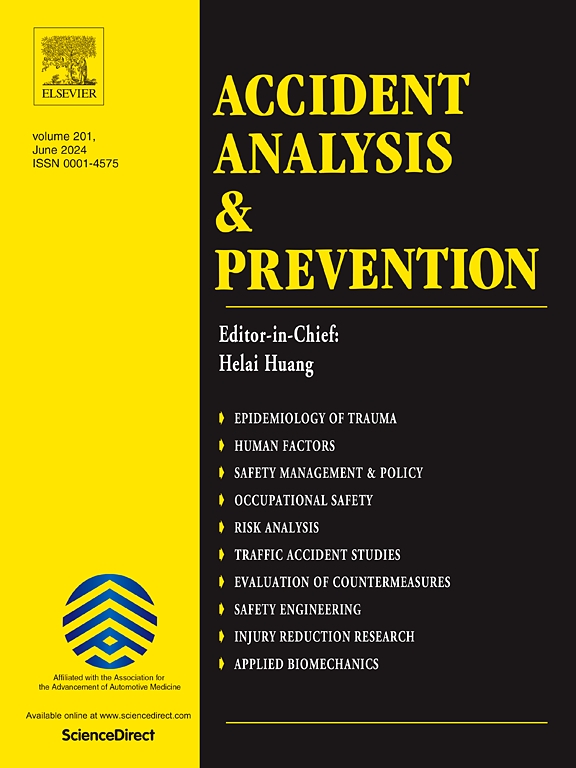Analysis of autonomous vehicle buyer’s decisions: Balancing ethics with Innovation in the trolley dilemma
IF 6.2
1区 工程技术
Q1 ERGONOMICS
引用次数: 0
Abstract
This study explores complex decision-making processes in autonomous driving, focusing on the ethical challenges presented by the trolley dilemma and the regulatory focus theory. When faced with significant choices in autonomous driving scenarios, such as the trolley dilemma, passengers prefer to make their own decisions rather than rely on a system’s automated choices. This preference of having a choice significantly increases their trust in the technology and their willingness to purchase autonomous vehicles. No notable difference was found in the moral judgment between decisions made by participants and those made by the autonomous system. Moreover, this research highlights the influence of the regulatory focus theory, demonstrating that participants placed greater trust in the system and made safer decisions when presented with prevention-focused messages, emphasizing avoiding adverse outcomes rather than promotion-focused messages highlighting positive outcomes and aspirations. The findings suggest that the presentation of the information and decisions by autonomous vehicles can profoundly influence passengers’ ethical choices, affecting their trust in and acceptance of autonomous technology. This study contributes to the understanding of consumer behavior and ethical decision-making in the rapidly advancing domain of autonomous vehicle technology, offering valuable insight into policy-making and the future design of these systems.
自动驾驶汽车购买者决策分析:小车困境中伦理与创新的平衡
本研究探讨了自动驾驶中的复杂决策过程,重点研究了电车困境和监管焦点理论所带来的伦理挑战。在自动驾驶场景中,当面临重大选择时,比如电车困境,乘客更愿意自己做决定,而不是依赖系统的自动选择。这种有选择的偏好大大增加了他们对技术的信任和购买自动驾驶汽车的意愿。参与者的道德判断与自主系统的道德判断没有显著差异。此外,本研究强调了监管焦点理论的影响,表明参与者在面对以预防为重点的信息(强调避免不利结果)而不是以促进为重点的信息(强调积极结果和愿望)时,更信任系统并做出更安全的决策。研究结果表明,自动驾驶汽车提供的信息和决策可以深刻影响乘客的道德选择,影响他们对自动驾驶技术的信任和接受程度。这项研究有助于理解快速发展的自动驾驶汽车技术领域的消费者行为和道德决策,为这些系统的决策和未来设计提供有价值的见解。
本文章由计算机程序翻译,如有差异,请以英文原文为准。
求助全文
约1分钟内获得全文
求助全文
来源期刊

Accident; analysis and prevention
Multiple-
CiteScore
11.90
自引率
16.90%
发文量
264
审稿时长
48 days
期刊介绍:
Accident Analysis & Prevention provides wide coverage of the general areas relating to accidental injury and damage, including the pre-injury and immediate post-injury phases. Published papers deal with medical, legal, economic, educational, behavioral, theoretical or empirical aspects of transportation accidents, as well as with accidents at other sites. Selected topics within the scope of the Journal may include: studies of human, environmental and vehicular factors influencing the occurrence, type and severity of accidents and injury; the design, implementation and evaluation of countermeasures; biomechanics of impact and human tolerance limits to injury; modelling and statistical analysis of accident data; policy, planning and decision-making in safety.
 求助内容:
求助内容: 应助结果提醒方式:
应助结果提醒方式:


